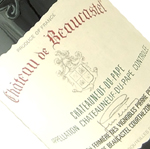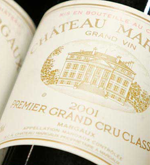Bordeaux wine history
Looking at the
Bordeaux wine production seems to have begun sometime after 43 AD, during the Roman occupation of Gaul, when the Romans established vineyards to cultivate wine for the soldiers. However, it is only in 71 AD that Pliny the Elder recorded the first real evidence of vineyards in Bordeaux.The area's location along the Gironde estuary provided an ideal trade route with the British Isles. Wine historian, Roger Dion, has theorized that the first vine cuttings that the Romans brought to Bordeaux originated in the Rioja region of Spain. The early budding of the Bordeaux wine industry suffered a number of disruptions following the fall of Rome. Seens many tribes and nations have tried to occupy, the city and the land, including the Visigoths, the Arabs and the Normans, but none with as much success as the English. When, in 1152, Henry Plantagenet married Eleanor, duchess of









